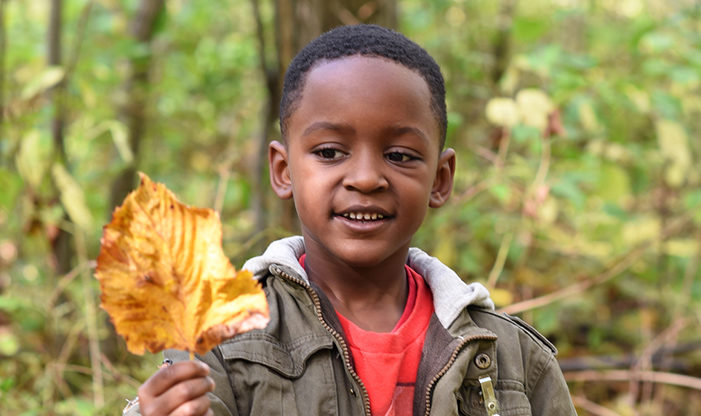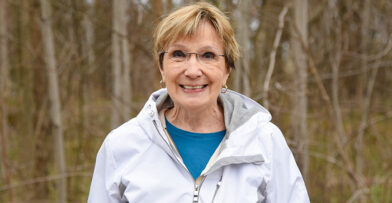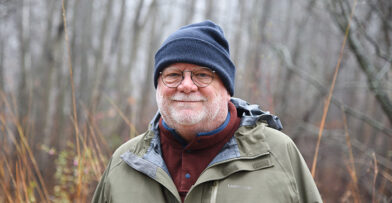Nature can provide children with some of their most profound formative experiences. From learning about colors by arranging fallen leaves, to discovering sounds by shaking dried seed pods, to exploring the tactile differences between angular rocks and smooth lake stones, nature has many lessons to teach. But what about children who may not live near a park or nature center, or aren’t able to visit natural spaces on a regular basis?
Since 2009, our Early Childhood Education Urban Outreach Program has provided opportunities for early learners to enjoy nature-based experiences that they may not otherwise have. Through this program, children from neighborhoods with few healthy green spaces now have access to forests, ponds, prairies, and the Lake Michigan shoreline. Classes spend their time exploring trails with Schlitz Audubon teachers, playing outdoors, and engaging in nature.
Schlitz Audubon partners with Malaika Early Learning Center, located in Milwaukee’s Harambee neighborhood, and Next Door Milwaukee, located in the Metcalfe Park neighborhood, to provide the Urban Outreach Program to about 150 students each year.
Our Nature Preschool teachers work closely with partner educators at each school to tailor nature-based programs to meet the specific needs of their class. As a result, partner teachers develop greater confidence in teaching natural science topics. Center teachers also visit partner schools twice a month, bringing hands-on natural materials, books, activities, and detailed lesson plans, all of which are intended to help their teachers build on, and continue, the curriculum that began while visiting Schlitz Audubon.
“Now our kids are so much more comfortable in nature,” said Sandy Gadzichowski, Education Manager for Next Door. “They think about nature, they talk about it, and they enjoy it.”
This consistent nature-based learning has a more lasting impact than occasional visits can provide. Regular nature experiences create a ripple effect where both teachers and children go on to share their knowledge with families, friends, and colleagues. By giving our earliest learners access to nature, not only are we ensuring that they are experiencing the joy of the outdoors today, but that they can continue to protect and provide such experiences for generations to come.


